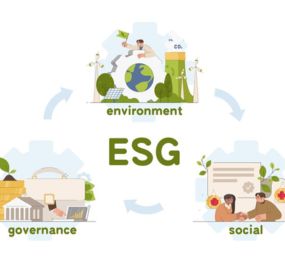Climate change is not merely an environmental issue; it poses a significant and growing threat to human health. From rising temperatures and extreme weather events to the spread of infectious diseases and air pollution, the impacts are far-reaching and demand urgent attention. These human health implications have profound implications for Environmental, Social, and Governance (ESG) considerations for businesses and investors.
Key Health Impacts of Climate Change:
- Extreme Weather Events: Increased frequency and intensity of heatwaves, floods, droughts, and wildfires lead to injuries, fatalities, displacement, and mental health impacts.
- Infectious Disease Spread: Changing climate patterns alter the geographic range and transmission of infectious diseases, such as malaria, dengue fever, and Lyme disease.
- Air Pollution: Climate change exacerbates air pollution, leading to respiratory illnesses, cardiovascular problems, and other health issues.
- Food and Water Security: Disruptions to agricultural systems and water resources threaten food security and increase the risk of malnutrition and related health problems.
ESG Implications for Businesses:
- Risk Management: Companies must assess and mitigate climate-related risks to their operations, supply chains, and human capital. This includes considering the potential impact of climate change on their workforce, customers, and communities.
- Product Development: Businesses can develop innovative products and services that address climate-related health challenges, such as climate-resilient infrastructure, clean energy solutions, and healthcare technologies.
- Stakeholder Engagement: Companies must engage with stakeholders, including employees, customers, and communities, on climate-related health issues and develop strategies to address their concerns.
- Transparency and Disclosure: Transparent disclosure of climate-related risks and impacts on human health is crucial for building trust with stakeholders and attracting responsible investors.
For Investors:
- Risk Assessment: Investors must consider the potential impact of climate change on the long-term financial performance of companies, including the risks associated with climate-related health impacts.
- Portfolio Diversification: Diversifying portfolios to include companies that are actively addressing climate-related health challenges can offer both financial and societal benefits.
- Advocacy and Engagement: Investors can engage with companies to encourage them to adopt more sustainable practices and mitigate their impact on human health.
Addressing the health impacts of climate change is not only a moral imperative but also a critical business consideration. By integrating these concerns into their ESG strategies, businesses and investors can play a vital role in mitigating climate change and building a more sustainable and equitable future for all.
For more information and registration details, visit the official website: https://www.leadventgrp.com/events/2nd-annual-world-esg-and-climate-summit/details
For more information and group participation, contact us: [email protected]
















